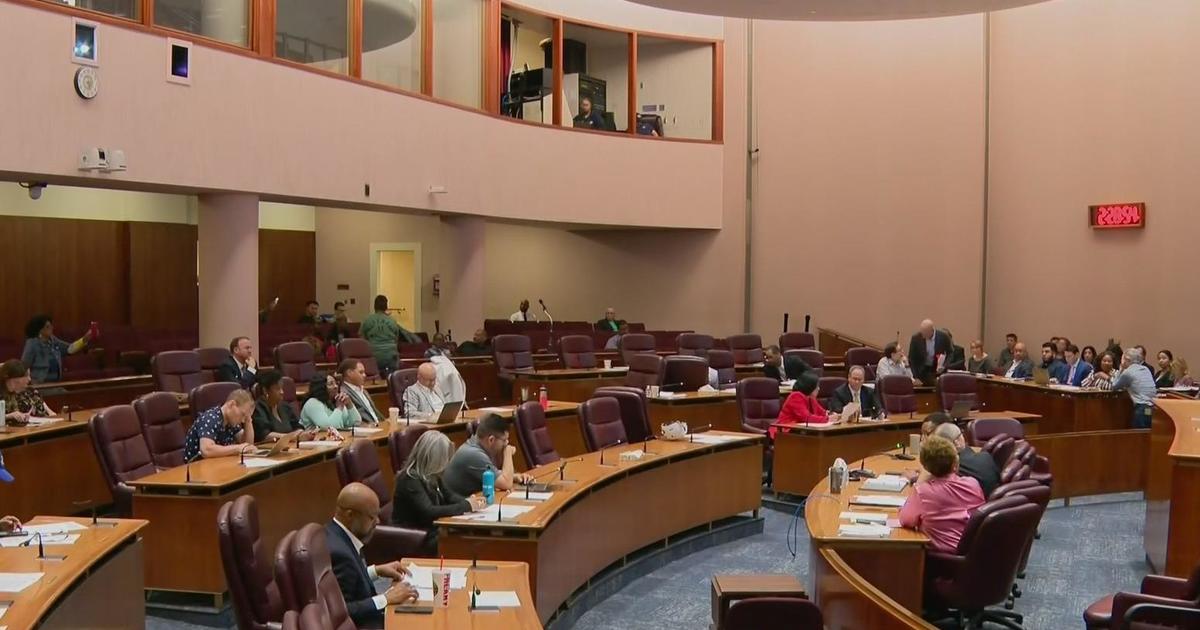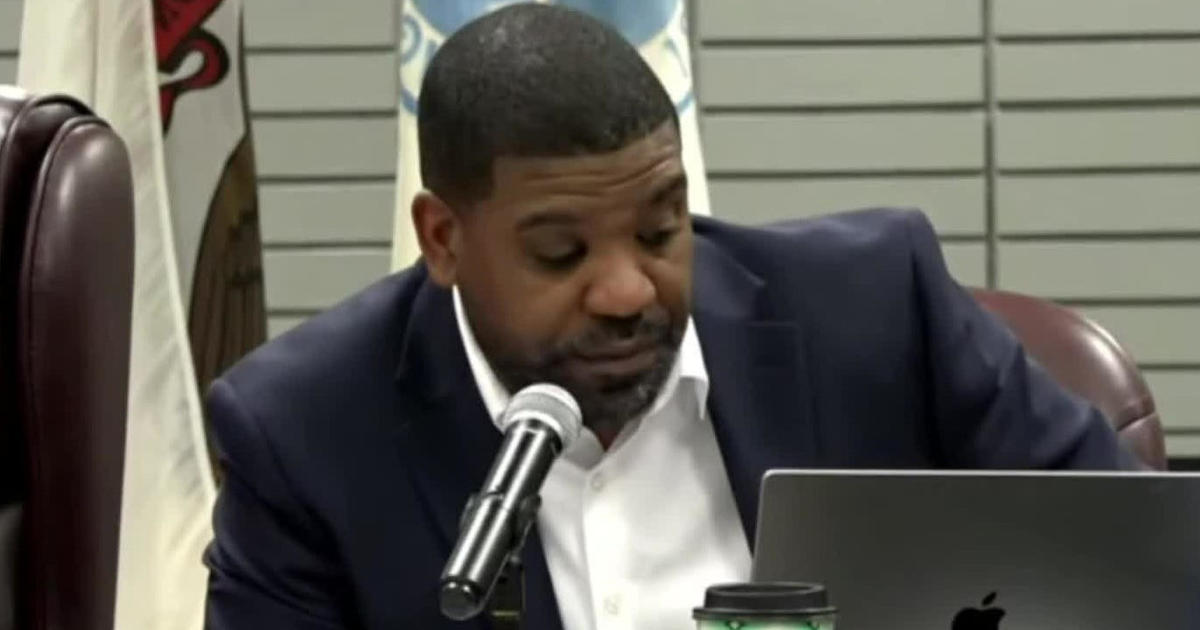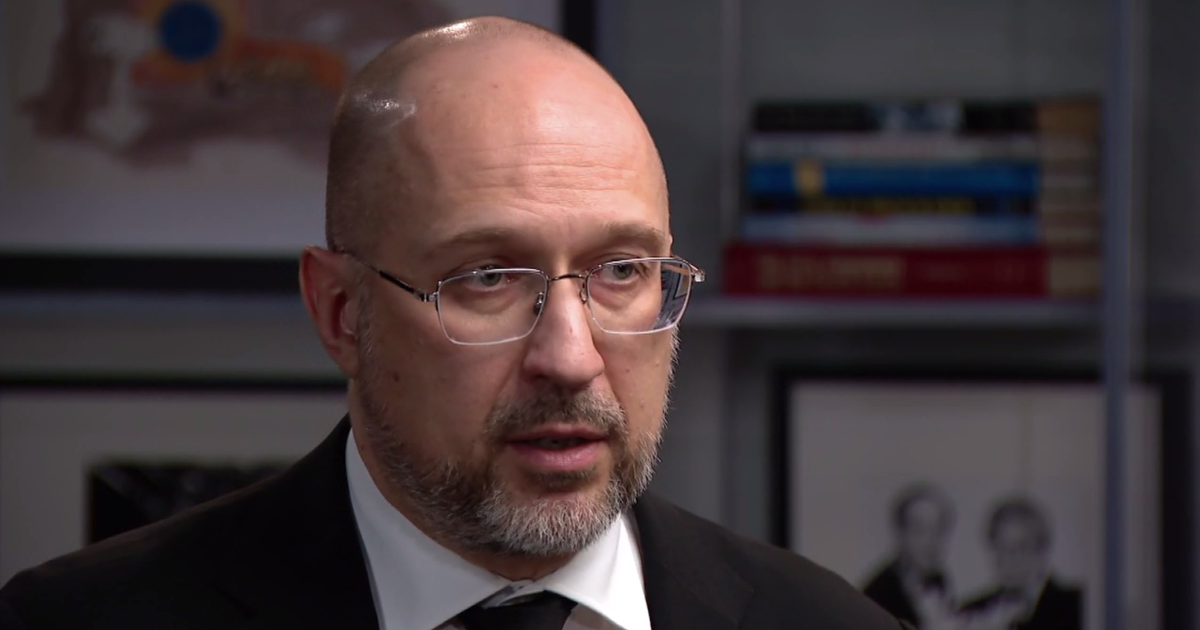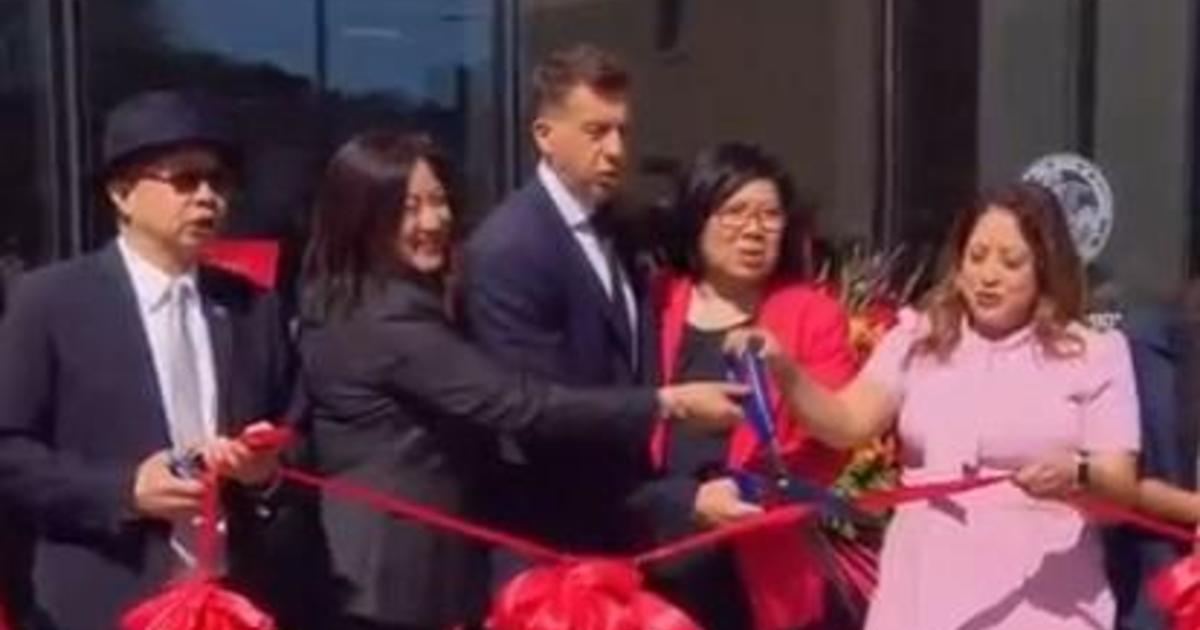Jury Selection Begins For Blago Retrial
UPDATED 04/21/11 7:21 p.m.
CHICAGO (CBS) -- As jury selection got underway Thursday in the retrial of former Gov. Rod Blagojevich, U.S. District Judge James Zagel questioned 22 potential jurors, eventually excusing or dismissing half of them from the jury pool.
At the end of the day, Blagojevich thanked the members of the jury pool for their service and the people who have showed him and his wife, Patti, their support ever since his arrest 2 ½ years ago.
"Both Patti and I want to express our deep gratitude," he said. "Patti and I are very grateful to them and will never forget their kindness."
Earlier in the day, before leaving for court, Blagojevich once again proclaimed his innocence outside his Ravenswood home.
"I've waited a long time to get the vindication that I deserve and that I owe to the people of Illinois," Blagojevich said. "I owe vindication to the people of Illinois so they can see that I didn't let them down, and so this is yet another process to end what has been a long, hard journey to get that achieved."
Jury selection got underway at about 11 a.m., after Zagel addressed a large group of jurors to explain the basic details of the case and tell them the importance of jury service.
"We fought a revolution so that you could sit here today," Zagel told potential jurors. "Your presence in this courtroom is a living symbol of the birth of our nation."
LISTEN: Newsradio 780's Nancy Harty Reports
Podcast
The judge reminded the jury pool that their job was to decide whether or not prosecutors prove Blagojevich's guilt, not whether they like him or not.
"You will not be asked whether you like or dislike, approve or disapprove of any person here," Zagel said. "You will only be asked to decide if the government has proved the charges beyond a reasonable doubt."
Before bringing in any jurors, Zagel mentioned that a couple of them have indicated on their questionnaires that they have strong negative opinions about politics in general.
"There are a couple of individuals who regard the entire system as corrupt," Zagel said. "One individual I can think of, you can't fail to notice that this person is embittered by life in general ."
"That attitude would probably not make for the best juror. … That person's probably not going to be seated," Zagel added.
As one woman, Juror 104, was being questioned in the courtroom, Zagel noted that she wrote on her questionnaire that she believes most elected officials make official decisions to benefit campaign contributors.
"I think it almost always happens and everyone knows it," she wrote, according to Zagel.
She was eventually dismissed from the jury pool.
Another potential juror, also indicated on his questionnaire that he had strong negative opinions of politicians.
According to Zagel, the Juror 110 wrote, "More and more I feel that most politicians are corrupt in one way or another."
Zagel also said that, from reading the juror's questionnaire, "It's also clear … you don't hold this defendant in high regard."
That potential juror also was eventually dismissed from the jury pool.
But just because a potential juror said on the questionnaire that he or she had a negative opinion of Blagojevich or thought he was guilty, based on media coverage of the first trial, that did not mean they'd automatically be dismissed from the jury pool.
Zagel said that a number of such jurors were able to convince him that they'd be able to place their opinions aside and judge the case based only on the evidence presented at trial.
For example, a retired auto shop owner said he thought Blagojevich was guilty based on what he knew about the case and initially said he might hold it against Blagojevich if he didn't testify at trial.
The potential juror, Juror 116, said that, because of the number of times Blagojevich claimed he wanted to take the stand before the first trial and then did not do so, if the same thing happened this time, he'd hold it against Blagojevich.
But when the judge said that jurors are not allowed to hold it against a defendant if he doesn't testify, the juror said he believed he'd be able to put his personal opinion of the governor aside.
Defense attorneys tried to have that juror knocked out of the jury pool for cause, but Zagel denied their request. It is possible defense attorneys will still use one of their 13 peremptory challenges – challenges that can be used for any reason – to remove that man from the jury pool.
As he did at Blagojevich's first trial, Zagel tried to keep the mood light while questioning potential, often asking them about their hobbies and joking with them.
A young woman, Juror 101, who works in the promotions department of a local radio station, said she also works as a substitute teacher for students in kindergarten through high school.
Zagel asked her "So, you can have a 5-year-old one day and a 17-year-old the next?"
"Yes, and they're equally bad," she answered.
The woman also said she feels politicians should be respected because they do a job she wouldn't want to do.
"It's a lot of responsibility … and is a job I would not want to do on a daily basis," she said.
Most potential jurors so far have said they know only a little bit about the Blagojevich case.
Juror 102, a retired forklift driver and construction worker, said he's heard about the case and was aware of the first verdict.
"He got away with some of it, but not all of it," he said, adding that he knew prosecutors were trying Blagojevich a second time.
That potential juror also expressed bitterness about how the person who killed his son in 1981 was sentenced only to probation.
Asked how that experience might affect him in the Blagojevich case, Juror 102 said, "I think everybody's guilty."
He was later excused from serving on the jury.
Although Zagel has decided to keep the jurors' names secret until the day after the verdict, one potential juror let slip her name when the judge said he would only be referring to them by jury numbers.
The woman, who is Hispanic and said she speaks only a little English, was later excused from the jury pool. Zagel said she clearly did not speak enough English to be an effective juror, given that she mistakenly identified herself when he said she wouldn't be named.
One other juror was also excused for language reasons before he was even brought into the coutroom for questioning. Another juror was excused because he is suffering from diabetes and his doctor said serving on a long trial would be difficult for him, given his current treatment regimen.
The judge also questioned a woman, Juror 114, who said she might have difficulty serving on a jury because of religious reasons.
"I'm a Christian and I remember part of the Bible that says you can't judge your fellow mate or fellow person," she said.
When Zagel noted that jurors are not asked to "judge people in the biblical sense," but only to decide if they committed certain illegal acts, the woman still seemed hesitant to say she could serve as a juror.
But the woman struggled a great deal to explain her concerns in more detail, stumbling over her words several times.
"I just can't explain it properly," she said. "I don't want to be put in that position where I say this person is right or this person is wrong."
When Zagel used the example of the woman, who is an accountant, examining a person's tax returns and telling them if they've made a mistake, she said that would not fit her idea of "judging" someone.
The judge later extensively questioned an attorney, Juror 115, who worked as an assistant state's attorney in Lake County in the 1980s and, later, as an assistant attorney general for the state of Illinois.
Zagel noted that the man indicated on his questionnaire that he has a negative opinion of politicians.
But on the stand, the man said it wasn't so much of a negative opinion of politicians, as much as disappointment in politics in general.
"I think I'm more disappointed in our political system and certain politicians," he said.
He also said he's read a good deal about the Blagojevich case and, based on what he's read, he's already formed an opinion about the case.
"I'm very familiar through media reports," he added. "In light of those facts, it would be challenging" to put aside his opinion of the case.
"Can you meet that challenge? Would you meet that challenge?" Zagel asked.
"I would make every good faith effort to meet that, yes," the potential juror said.
Later, another member of the jury pool made it abundantly clear that he already believes Blagojevich is guilty and would have a hard time setting that opinion aside to serve on a jury.
Juror 116 said he believes Blagojevich is guilty based on what he knows about the case so far, but believes he could set that opinion aside. But he also said he'd feel biased against Blagojevich if he doesn't testify at trial.
Jurors were informed that defendants are not required to testify or present any witnesses in their defense and jurors are not allowed to hold that against him in reaching a verdict. But on his questionnaire, Zagel said that Juror 116 wrote, "Every chance he gets, he says he will testify. I think I would hold it against him if he didn't testify."
Even when Zagel reminded the man that he'd be required not to hold it against Blagojevich if the former governor doesn't testify, the potential juror said, "I think I would have a bias against the defendant simply because of the number of times that he said he wanted to testify and would testify and did not do so."
A total of nine potential jurors were dismissed Thursday for cause -- either for their bias or for hardship reasons.
Zagel said he hopes to question another 40 potential jurors on Monday, when jury selection resumes.
Zagel hopes to have a jury seated by Wednesday and begin opening statements Wednesday afternoon or Thursday morning.
Among other charges, Blagojevich is accused of trying to sell or trade an appointment to the U.S. Senate seat vacated by President Barack Obama in 2008.
Todd Feurer, CBSChicago.com



